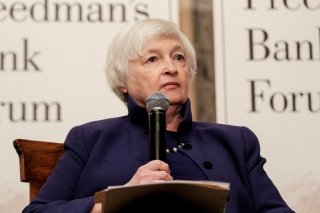Inflation Misery: September Consumer Price Index Up 8.4% Since Last Year
Meanwhile, core inflation, which excludes volatile food and energy items, was up 6.6 percent compared to a year ago, the biggest annual gain since August 1982.
The Labor Department announced on Thursday that prices consumers pay for a wide variety of goods and services increased more than expected in September, Fox Business reported.
The consumer price index (CPI) was found to have risen 0.4 percent for the month and 8.2 percent annually, down from 8.3 percent in August and 9.1 percent in June, as climbing food and rent costs again offset falling gas prices. The cost of groceries rose 0.7 percent, placing the twelve-month increase at 13 percent, while rent costs jumped 0.8 percent and 6.7 percent annually.
Meanwhile, core inflation, which excludes volatile food and energy items, was up 6.6 percent compared to a year ago, the biggest annual gain since August 1982.
The CPI report initially rattled financial markets before reversing course as traders likely priced in more aggressive interest rate hikes going forward from the Federal Reserve.
“The Federal Reserve has made it very clear they’re committed to price stability, they’re committed to reducing the inflationary pressures,” Michelle Meyer, chief U.S. economist at the Mastercard Economics Institute, told CNBC.
“The more inflation comes in above expectations, the more they’re going to have to prove that commitment, which means higher interest rates and cooling in the underlying economy,” she continued.
Last month, the Fed approved a third consecutive seventy-five-basis-point interest rate hike and suggested that it will keep raising rates well above the current level. With the move, the central bank took its federal funds rate up to a range of 3 percent to 3.25 percent, the highest level since the global financial crisis in 2008. The Fed’s median estimate shows that rates are projected to reach 4.6 percent next year.
According to the latest Fed meeting minutes released on Wednesday, the central bank reiterated that rate hikes are likely to continue until inflationary pressures show signs of reversing.
“Participants judged that the Committee needed to move to, and then maintain, a more restrictive policy stance in order to meet the Committee’s legislative mandate to promote maximum employment and price stability,” the meeting summary stated.
“Participants observed that inflation remained unacceptably high and well above the Committee’s longer-run goal of 2 percent. Participants commented that recent inflation data generally had come in above expectations and that, correspondingly, inflation was declining more slowly than they had previously been anticipating,” it continued.
On Monday, JPMorgan Chase CEO Jamie Dimon sounded the alarm that the United States could tip into “some kind of recession six to nine months from now.”
Ethen Kim Lieser is a Washington state-based Finance and Tech Editor who has held posts at Google, The Korea Herald, Lincoln Journal Star, AsianWeek, and Arirang TV. Follow or contact him on LinkedIn.
Image: Reuters.

